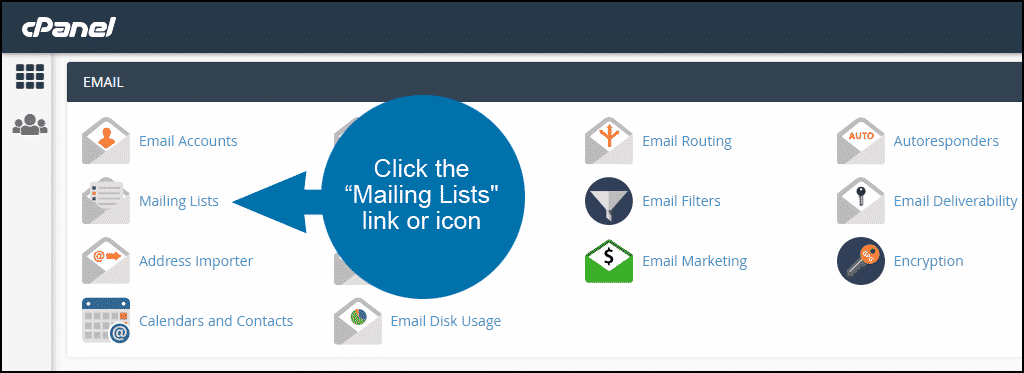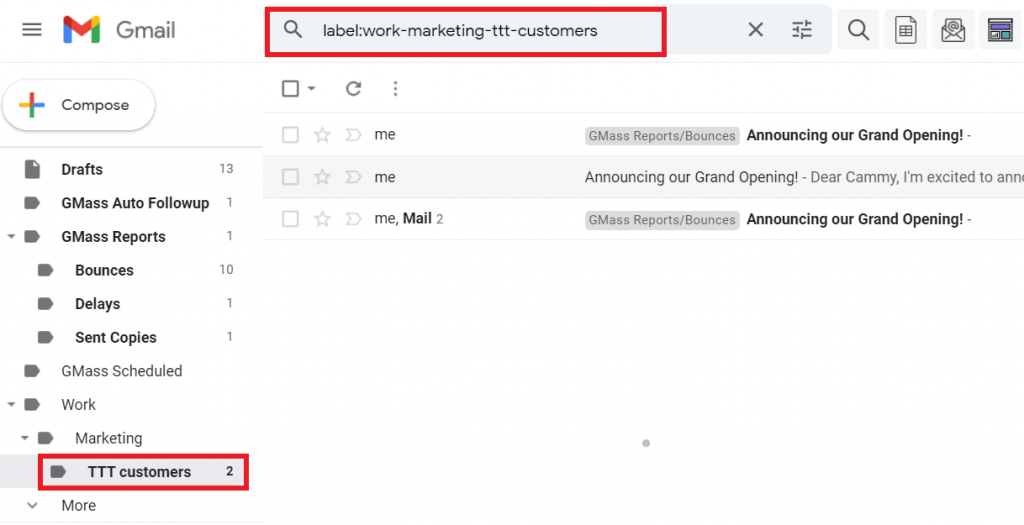What Are The Factors I Should Consider Before Purchasing An Email List Of Hematologists?
Take note of these essential factors when purchasing a physician’s email list. It is important to ensure that your list is accurate, efficient. legal, and appropriate for your goals in marketing. Here are some crucial considerations. Data Accuracy & Quality
Source of Data – Confirm that the provider of the email list uses reliable sources. This includes medical databases and professional directories. Hematologists may opt-in to receive emails once they’ve confirmed their consent. The credibility of a list can be judged by the accuracy with which contacts were collected.
Verification and updates: Ask the provider for information on their data verification processes. Email addresses should be verified to eliminate inactive or invalid email addresses. It is essential to update the list up to date when healthcare professionals switch their jobs or work at different institutions.
Segmentation by specialization: The list must be specific to the field of hematologists. If possible, segment the list further, such as by subspecialty, location, years of practice, or an affiliation with hospitals. Segmented lists can assist in targeting your outreach better.
2. Legal Regulations
Data Privacy Laws – Ensure that the list is compliant with applicable laws and regulations, for example California Consumer Privacy Acts in the U.S.A. or General Data Protection Regulations in Europe. The email addresses collected must have the approval of all the parties who are involved.
CANSPAM Act – If you are in the U.S. you must ensure that your list conforms to the CANSPAM Act. This law regulates email commercial communications. Your emails could also be deemed spam if you do not conform to.
Opt-in Consent: The opt-in list should include hematologists who have explicitly opted in to receive emails from third-party companies. Emails that are not solicited and sent to people without consent can lead to low engagement as well as legal issues.
3. Provider Reputation
Research the reputation and experience of the list company. For a more reliable provider, check reviews and testimonials or case studies. A well-established company that has a history of delivering top-quality and accurate information will be more likely.
Transparency. Choose a service provider that’s transparent regarding how and from where data is collected. It is best to avoid companies who aren’t clear about method of collecting data.
Customer Service: A reliable service will offer excellent customer service. Support is crucial if you are having problems with your setup or technical configuration, need to customize your list, or have questions regarding compliance.
4. Costs and Return on Investement (ROI).
Pricing Model: Look at the pricing model offered in the form of pay-per-contact or flat fee. Be sure that the price is in line with the potential return on investment. Make sure you balance the quality of your list and quantity with your budget.
Refund Policy or Replacement Policy. A trustworthy provider will offer a policy of refund or replacement for invalid or outdated emails. Clarify any conditions or terms prior to you make a purchase.
Value for money Comparison of features such as segmentation choices and data accuracy guarantees with the costs. It might not be worth it to buy the cheapest list if data quality is low.
5. Data Ownership and Usage
Multiple Use: Understand the rules of use applicable to the email list. Multiple Use: Be aware of the rules of use that apply to the email list. You might only be allowed to use a list once in campaigns. Other companies offer unlimited rights of usage.
Exclusive vs. Shared Lists. Find out whether an email list is solely yours or is shared by other buyers. Exclusive lists typically offer better engagement, as the contacts will be less likely to receive emails from marketing from multiple sources.
6. Data Integration and Format
Integrity with CRM and Email Tools – Ensure that the email list can be easy to integrate with your CRM platform or email marketing tool. The list should be accessible in common formats such as CSV or Excel to allow seamless integration.
Easy to Use: Check how easy the list is to manage. Lists with a lot of data that is difficult to manage or segment could reduce the effectiveness and efficiency of your campaign.
7. Ethical concerns
Relevance for Hematologists: Make sure that the email you send out is appropriate to hematologists. If you send content to hematologists that does not align with their expertise could cause low engagement and negatively impact the reputation of your brand.
Sending too many emails can be viewed as spam. Inadequately sending emails can result in complaints about spam and harm your reputation as an email sender.
Conclusion
A hematologist’s email list is a great tool for marketing targeted to a specific audience, but it is important to be aware when you purchase one. To ensure that you are getting a list of high quality and accuracy, concentrate on the accuracy of the data and the compliance with privacy laws and the reputation and track record of the provider. Prioritizing segmentation and the legal requirements and ethical advertising can allow you to maximize your return on investment and maintain your brand’s reputation. Have a look at the expert hematologists email list for blog advice.

What Are The Important Things I Need To Consider When Buying An Email List Of Physical Therapists?
If you’re thinking of purchasing a list for physical therapists, it’s crucial to take a variety of factors into account to ensure that the list you choose to purchase is correct and legally compliant. It also will work well in conjunction with your outreach and marketing. Here are some key considerations. Data Quality and Accuracy
Source of data: Make sure you check the source of information to make sure it comes from a reliable, reputable source, like professional organizations (e.g. American Physical Therapy Association), medical directories, or licensing organizations. It is important to ensure that the email addresses collected are valid and reliable.
Verification Process: Confirm the process of the list provider for regularly updating and verifying the accuracy of the data. A reliable provider will often clean their list to remove inactive or invalid email addresses. This ensures greater deliverability and less bounce rates.
Segmentation Options A good list of physical therapists will include segments to choose from. These filters can include locations (city/state/country) as well as years of experience, specialties of specialization (e.g. sports therapy, orthopedics, or pediatrics) or type of practice (private practice, rehab center, hospital). Segmentation allows you to reach the right audience by using targeted messages.
2. Legal Regulations
Data Privacy Laws – Ensure that the email list is compliant with the relevant laws governing data protection, such as the General Data Protection Regulation in Europe or the California Consumer Privacy Act in the U.S.A. The data must be collected and processed legally with the consent of the individuals listed.
Compliance with the CANSPAM Act Marketing campaigns that use email within the U.S. must adhere to the CANSPAM Act. This law requires that emails include opt-out options as well as exact subject lines. They also require an address that is physically located. Making sure your list is in compliance with this law reduces the risk of fines and legal issues.
Opt In Consent: Make sure whether all those who are listed have given their permission to receive marketing messages. Physical therapists have given their consent to be contacted by an unrelated third entity, which decreases the risk of spam complaints.
3. Provider Reputation
Reputable Provider – It’s important to select a company that is well-known for providing top-quality and accurate email lists. Read reviews, testimonials or cases studies submitted by clients to determine the reliability of the list service.
Transparency: Providers need to be transparent in how they gather and update their data. If they cannot clearly explain the methods they use to collect data clearly, this could be a red flag indicating that the information may be outdated or obtained through suspicious methods.
Customer Support – Ensure that the service provider provides outstanding customer service, should you encounter problems with your list or need assistance in compliance issues or the integration of the marketing tool. Contacting customer support in response can save you time and to avoid future issues.
4. Cost and Return On Investment (ROI).
Pricing Model: Know the pricing policy provided by the provider. Some companies charge based on the amount of contacts they make or the number of contacts made, while other providers may offer a flat rate or a subscription. Examine the expected ROI against the costs to determine which is the most cost-effective marketing strategy.
Ask the provider about their refund or exchange policy should a significant percentage of addresses are not valid. This can protect you in the event that the list you received does not match your requirements.
Don’t select the list solely based on price. Lower-priced lists may contain less accurate or outdated emails, which can harm your marketing campaign. Don’t choose the cheapest option. It is important to prioritize segmentation and high-quality.
5. Ownership of the data, Data Usage and Access
Single-Use and multi-Use: Identify the distinction between lists that are intended for a single purpose and lists that you could reuse for a variety of campaigns. Although mailing lists with a single use are less expensive, you are less flexible in future outreach. Multi-use lists are more beneficial for long-term campaigns.
Exclusive and Exclusive. Shared lists: Check whether the list you are purchasing is exclusive, or if other buyers can also purchase it. Shared lists might have been overused which can lead to fatigue with emails that can lower the rate of engagement.
6. Data Integration and Format
CRM Compatibility – Ensure the list of emails you receive is in a format that can be used in conjunction with your Customer Relationship Management (CRM) platform or email marketing platform, such as CSV. This will allow for easy administration and integration of data.
Ease of Use An organized list is one that is easy to sort and manage. You will be able to send more customized and effective messages if you can identify and focus on physical therapists quickly according to the relevant criteria.
7. Ethical Aspects
Relevance of content: Because physical therapists are highly trained professionals, your communication should be valuable and relevant. Avoid messages that are generic or irrelevant since it could harm your brand reputation and decrease engagement rates.
Beware of Spam methods: Don’t send too many emails to people. If you send out too many emails, it can result in spam complaints or even unsubscribes. This could damage your sender’s reputation.
Conclusion
When buying a physical therapists email list, pay attention to the accuracy of the data as well as legal compliance and the reputation of the service provider. Prioritize a list that offers segmentation, is regularly updated and complies with data privacy laws. A well-researched, top-quality list will result in better targeting, more engagement, and a greater return on your marketing investment. See the top physical therapists email list for blog recommendations.




